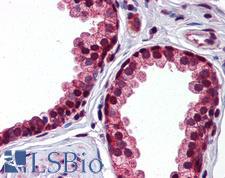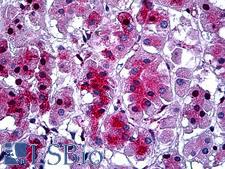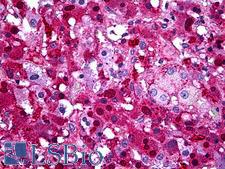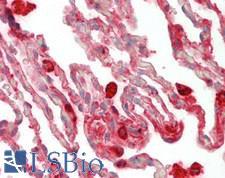Login
Registration enables users to use special features of this website, such as past
order histories, retained contact details for faster checkout, review submissions, and special promotions.
order histories, retained contact details for faster checkout, review submissions, and special promotions.
Forgot password?
Registration enables users to use special features of this website, such as past
order histories, retained contact details for faster checkout, review submissions, and special promotions.
order histories, retained contact details for faster checkout, review submissions, and special promotions.
Quick Order
Products
Antibodies
ELISA and Assay Kits
Research Areas
Infectious Disease
Resources
Purchasing
Reference Material
Contact Us
Location
Corporate Headquarters
Vector Laboratories, Inc.
6737 Mowry Ave
Newark, CA 94560
United States
Telephone Numbers
Customer Service: (800) 227-6666 / (650) 697-3600
Contact Us
Additional Contact Details
Login
Registration enables users to use special features of this website, such as past
order histories, retained contact details for faster checkout, review submissions, and special promotions.
order histories, retained contact details for faster checkout, review submissions, and special promotions.
Forgot password?
Registration enables users to use special features of this website, such as past
order histories, retained contact details for faster checkout, review submissions, and special promotions.
order histories, retained contact details for faster checkout, review submissions, and special promotions.
Quick Order
PathPlusTM Alpha-1-Antichymotrypsin Antibodies
SERPINA3 (Alpha-1-Antichymotrypsin) is an alpha globulin glycoprotein produced in the liver that functions as a plasma serine protease inhibitor. It functions in tissue repair and helps reduce damage resulting from inflammatory proteolysis. It is also involved in regulating proliferation and chromatin condensation. Mutations in SERPINA3 are associated with Alzheimer's disease, Parkinson’s disease and chronic obstructive pulmonary disease. Deficiency is correlated with liver disease, while upregulation of SERPINA3 potentially plays a role in the progression of prion diseases. Upregulated SERPINA3 is also associated with invasive properties and progression in glioblastoma. SERPINA3 is an inflammatory marker, and in immunohistochemistry of normal tissue it is positive in the cytoplasm and in extracellular deposits in histiocytes and reticulum cells. In cancer, it is positive in glioblastoma, acinar cell carcinomas of the pancreas, salivary gland and breast, and hepatoid adenocarcinomas of the stomach.
References: Nucleic Acids Res. 2016 Jan 4;44(D1):D733-45, PMID: 26553804; Scientific Reports. 2017. 7 (15637), DOI: 10.1038/s41598-017-15778-8; Gastroenterology 2013;144:818, PMID: 23295442; Australian & New Zealand Journal of Psychiatry. 2014. Vol. 48(8): 722–734, DOI: 10.1177/0004867414531078; Oncol Lett. 2018 Jan; 15(1): 285–291, PMID: 29399139
4 PathPlusTM Antibodies




☰ Filters
Products
Antibodies
(4)
Type
Primary
(4)
Target
Alpha-1-Antichymotrypsin
(4)
Reactivity
Human
(4)
Application
IHC
(4)
IHC-P
(4)
WB
(3)
Flo
(1)
ELISA
(3)
ID
(1)
IP
(2)
Host
rabbit
(1)
mouse
(2)
goat
(1)
Product Group
PathPlus Cancer Pathology
(4)
PathPlus Neuro
(4)
Isotype
IgG
(1)
IgG1,k
(1)
IgG2a,k
(1)
Clonality
monoclonal mc
(2)
polyclonal pc
(2)
Clone
1C10
(1)
1E6
(1)
Format
Unconjugated
(4)
Epitope
aa254-303
(1)
Publications
No
(3)
Yes
(1)

Neuroscience
Cancer Pathology
Alpha-1-Antichymotrypsin Rabbit anti-Human Polyclonal (aa254-303) Antibody
Human
IHC, IHC-P, WB
Unconjugated
50 µl/$460

Neuroscience
Cancer Pathology
Alpha-1-Antichymotrypsin Mouse anti-Human Monoclonal (1C10) Antibody
Human
ELISA, IHC, IHC-P
Unconjugated
50 µg/$375

Neuroscience
Cancer Pathology
Alpha-1-Antichymotrypsin Mouse anti-Human Monoclonal (1E6) Antibody
Human
ELISA, IHC, IHC-P, IP, WB
Unconjugated
50 µg/$375

Neuroscience
Cancer Pathology
Alpha-1-Antichymotrypsin Goat anti-Human Polyclonal Antibody
Human
ELISA, Flo, ID, IHC, IHC-P, IP, WB
Unconjugated
0.5 mg/$375
Viewing 1-4
of 4
product results










